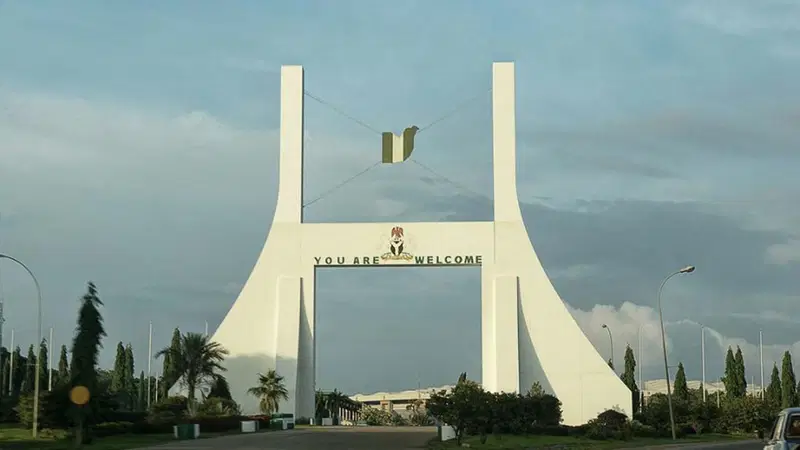Forget the high politics and low skulduggery playing out between the country’s leaders ahead of the 29 May general election, the government-organised job fair in Durban’s Umlazi township is where one of the main issues on the minds of ordinary people is on display.
South Africa is facing crushingly high unemployment levels, with the latest jobless figures ticking up slightly to 33% – ranked by the World Bank as the worst of any nation. Among young people, it is even higher at 46%.
This may also explain why not everyone has much enthusiasm for the election.
Aged 37, Mondli Magwaza, says he has never been employed and is looking for any job “because I’m desperate”.
He is among those who have decided they will not vote for the governing African National Congress this time.
Zara, 44, just got retrenched. She has no kind words for the ANC, a party she has always voted for after it led the campaign against white-minority rule.
“Empty, empty promises. I feel very bad.”
The ANC is facing its stiffest test since winning the country’s first democratic elections in 1994, as opinion polls indicate that its share of the vote may fall below 50% for the first time.
The state of the economy is certainly one thing that has got people considering political alternatives.
South Africans’ desperate search for jobs overshadows election
1 day ago
Anne Soy,
BBC News, Durban & Johannesburg
Share
BBC People in a queueBBC
South Africa’s unemployment rate has remained stubbornly high
Hundreds of South Africans have turned up at the job fair, CVs and school certificates in hand, hoping that they may get their big break.
Queues are long. Many appear anxious.
Forget the high politics and low skulduggery playing out between the country’s leaders ahead of the 29 May general election, the government-organised job fair in Durban’s Umlazi township is where one of the main issues on the minds of ordinary people is on display.
South Africa is facing crushingly high unemployment levels, with the latest jobless figures ticking up slightly to 33% – ranked by the World Bank as the worst of any nation. Among young people, it is even higher at 46%.
This may also explain why not everyone has much enthusiasm for the election.
Aged 37, Mondli Magwaza, says he has never been employed and is looking for any job “because I’m desperate”.
He is among those who have decided they will not vote for the governing African National Congress this time.
Zara, 44, just got retrenched. She has no kind words for the ANC, a party she has always voted for after it led the campaign against white-minority rule.
“Empty, empty promises. I feel very bad.”
The ANC is facing its stiffest test since winning the country’s first democratic elections in 1994, as opinion polls indicate that its share of the vote may fall below 50% for the first time.
The state of the economy is certainly one thing that has got people considering political alternatives.
Woman in a fuchsia overall
Britney Finnis is hoping to get work as an electrician after a short training course
But in their everyday lives, young South Africans are doing what they can to get themselves in the right position to get a job.
Dressed in a fuchsia protective overall, 23-year-old Britney Finnis is carefully unscrewing an electrical socket at the St Charles Lwanga Skills Centre at Orange Farm, on the outskirts of Johannesburg.
She is learning to be an electrician – just one of the many trade subjects on offer.
“It’s difficult finding a job and having these courses really helps a lot,” she says.
Ms Finnis plans to take it further and try and open her own business as “that’s the only way we’re going to get employment”.
She says electricians are hard to find in her community and that was what motivated her to enrol.
“They are rare, and when we do get someone, they usually are very expensive.”
In the sewing room, budding seamstress Rita Mida is stitching a black blazer on an electric machine.
The 34-year-old says she has been a housewife and has ruled out ever finding a job in the formal sector and wants to start her own business.
“I think it’s going to be a bit of a challenge finding resources,” she says but she will give it a go anyway.
“I am going to stay hopeful.”
The Catholic Institute of Education of South Africa runs this centre and 25 others like it across the country.
Nathan Johnstone oversees the national programme and says that about 30% of those who complete the courses are in a job within a year. That may not sound high, but given the economic context it is seen as a success.
The government has a host of initiatives to get people into work but Employment Minister Thulas Nxesi cites “historical structural issues, which are linked to education and skills development” as one of the underlying causes of chronic unemployment.
The years of the racist system of apartheid skewed the economy. It not only embedded huge wealth disparities but also inequalities in education and skills training.
The apartheid and, before that the colonial, economy relied on the country’s vast mineral resources to generate wealth. But South Africa can no longer rely on the mining industries.
“Scars will take a long time to heal,” said President Cyril Ramaphosa as the country marked 30 years of democracy last month. There has been a “generational handing-over of inequality”, he added. (BBC Africa)
Advertisement





